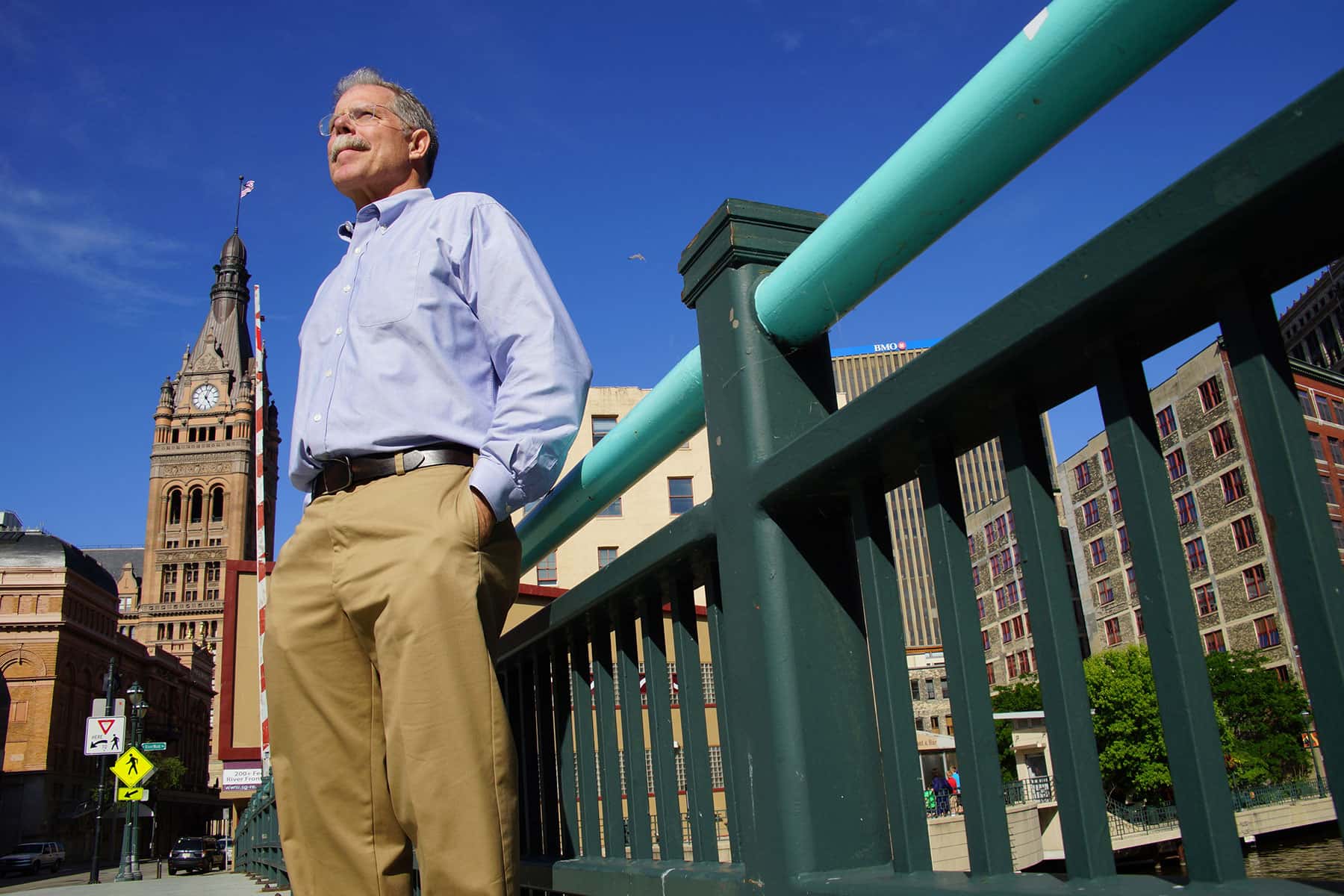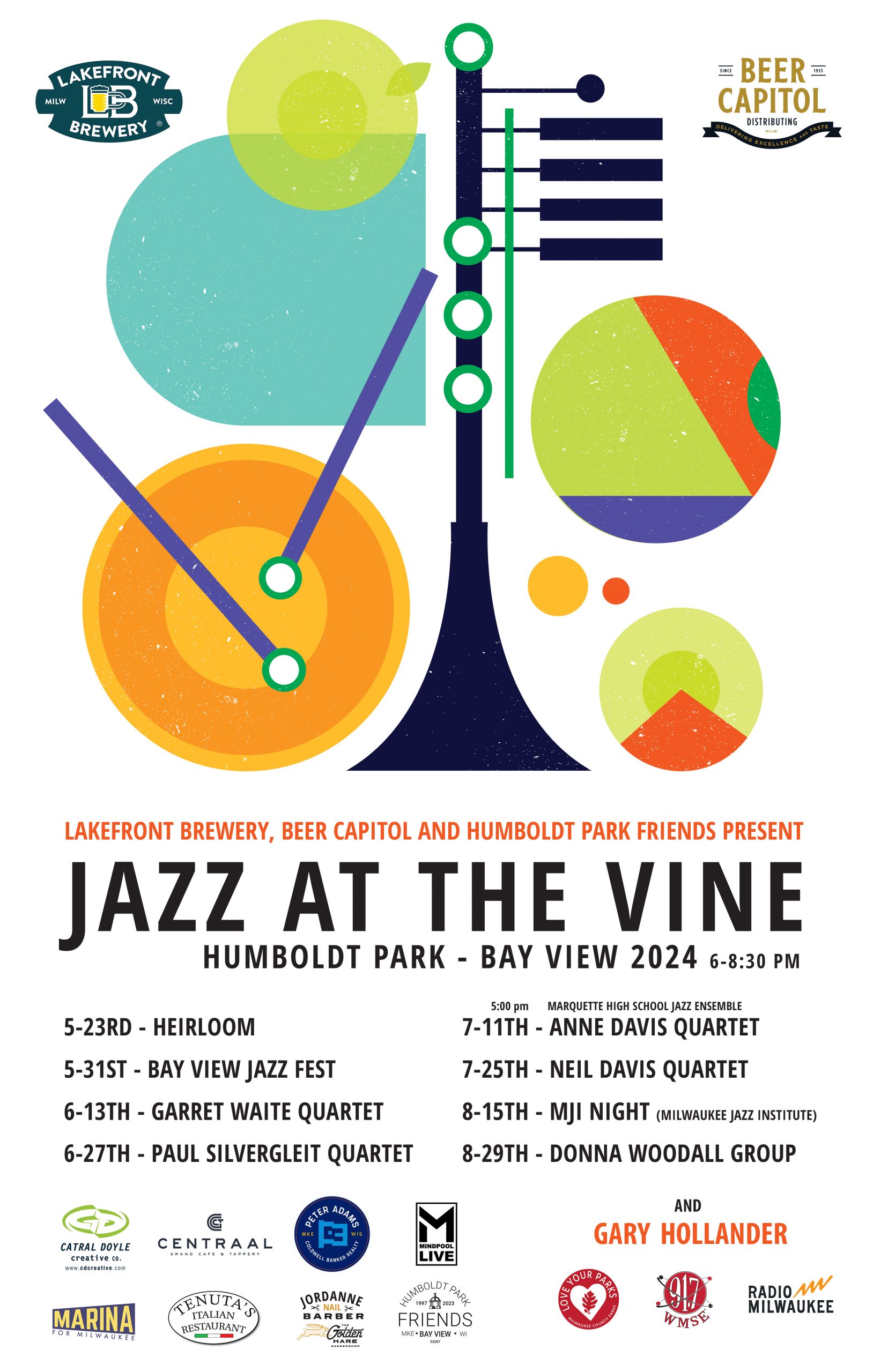Humboldt Park Lagoon Restoration Nets Sweet Water Funding
HPF cleared cattails and other invasive plants from two sections of shoreline in autumn 2016 and 2017.
MILWAUKEE (April 11, 2018) — Humboldt Park’s 125 year-old lagoon will be getting a little makeover beginning later this spring, thanks to the efforts of volunteers and a $4,100 grant from the Southeastern Wisconsin Watersheds Trust (Sweet Water). Humboldt Park Friends (HPF), a nonprofit volunteer group, is one of 14 groups receiving grants from Sweet Water this year.
Members of HPF have been working with the Milwaukee County Parks Department and Wisconsin Department of Natural Resources to restore the four-acre lagoon in the center of the 73-acre park located in the heart of Milwaukee’s Bay View neighborhood. HPF cleared cattails and other invasive plants from two sections of shoreline in autumn 2016 and 2017 as part of a pilot project to improve the lagoon. Later this spring, volunteers will establish native plants along some of the cleared shoreline to control erosion and maintain the newly created vista of the lagoon.
“About 15 years ago, cattails were introduced to control access to the lagoon by geese. The combination of little cattail maintenance and arrival of invasive species changed the lagoon as it had been for more than 100 years,” said Timothy Richter, co-chair of HPF Lagoon Committee. “During the past 10 years, cattails went from a few access points to overtaking roughly 90 percent of the lagoon shoreline. In some areas, these plants extend 40 feet outward from the shoreline.”
In 2016, HPF launched a pilot project to remove cattail and invasive species by cutting cattails
below the water level, depriving them of oxygen. The pilot project opened up 30 feet of shoreline and worked so well that HPF was permitted to expand the test area and cleared an additional 50 feet of shoreline last autumn.
“We received immediate, positive feedback from park visitors on the new vista created by the removal,” said Jane LeCapitaine, co-chair of HPF Lagoon Committee. “It also sparked additional community interest in getting involved in the lagoon’s restoration. We’re looking for ways to share our resources and knowledge with other friends of the parks groups in Milwaukee County.”
The Parks Department directed HPF to develop a plan to control erosion and run-off by planting native vegetation to reclaimed sections of shoreline this year. The native plants will prevent excessive nutrients – like grass clippings, goose and animal feces, dirt and other materials on the paved pathways – from reaching the lagoon. Results from the cattail removal and shoreline planting will be used in development of a long-term lagoon restoration.
HPF will receive $2,005 from Sweet Water during the annual Clean Rivers, Clean Lakes conference at Alverno College on April 26. Sweet Water will award HPF another $2,005 later this summer after the shoreline planting is completed. HPF plans to purchase native plants, additional equipment and removal tools for reclaiming and restoring shoreline with the second half of the grant money.
Milwaukee County Supervisor Jason Haas, who represents the area and participated in both the cattail and invasive species removal, cutting last year, said what HPF is doing is an excellent example of how volunteer groups can work together with county employees to improve the parks system.
“The issues faced by Humboldt Park are not unique. Milwaukee County’s Parks System has more than 60 parks with ponds and lagoons with challenges including water quality, shoreline deterioration and overgrowth from aggressive plants like cattails,” said Haas. “Other park friends groups are interested in restoration of their park lagoons. This pilot at Humboldt Park can serve as a demonstration project that can be replicated by other volunteer groups at other parks.”
Planting of native vegetation will take place between late April and June. Later this summer, the Milwaukee Riverkeeper will conduct water quality sampling of the lagoon as part of the long-range restoration efforts. Additional cattail and invasive vegetation removal and shoreline restoration is planned for early October. To learn more or get involved, go to http://www.humboldtparkmilwaukee.org.
About Humboldt Park
Originally named South Park, Humboldt Park was one of six parks created when the City of Milwaukee established a Parks Commission in 1890. The original 45-acre park opened in 1891 and a picturesque lagoon and adjoining creek were excavated two years later. In 1900, the park was renamed Humboldt Park in honor of Friedrich Wilhelm Heinrich Alexander von Humboldt, a Prussian geographer and naturalist who did extensive work on botanical geography. Humboldt Park continues to be a center point of the Bay View neighborhood providing a wealth of events and accessible nature within an urban park setting.
About Humboldt Park Friends
Humboldt Park Friends is a non-profit organization through its membership with the Park People of Milwaukee, serving as a liaison between the Milwaukee County Parks Department and the community. Established in 1997 by Ruth Simos, Humboldt Park Friends operates under the Park People and is governed through its own elected board. Tim Richter and Jane LeCapitaine co-chair the organization’s Lagoon Committee. Learn more at http://www.humboldtparkmilwaukee.org.
NOTE: This press release was submitted to Urban Milwaukee and was not written by an Urban Milwaukee writer. While it is believed to be reliable, Urban Milwaukee does not guarantee its accuracy or completeness.
























